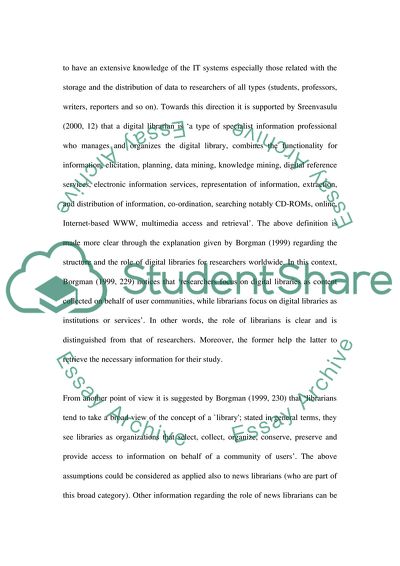Cite this document
(Evolving Role of a News Librarian in a Digital Age Book Report/Review, n.d.)
Evolving Role of a News Librarian in a Digital Age Book Report/Review. Retrieved from https://studentshare.org/literature/1709798-evolving-role-of-a-news-librarian-in-a-digital-age-a-review-of-the-literature
Evolving Role of a News Librarian in a Digital Age Book Report/Review. Retrieved from https://studentshare.org/literature/1709798-evolving-role-of-a-news-librarian-in-a-digital-age-a-review-of-the-literature
(Evolving Role of a News Librarian in a Digital Age Book Report/Review)
Evolving Role of a News Librarian in a Digital Age Book Report/Review. https://studentshare.org/literature/1709798-evolving-role-of-a-news-librarian-in-a-digital-age-a-review-of-the-literature.
Evolving Role of a News Librarian in a Digital Age Book Report/Review. https://studentshare.org/literature/1709798-evolving-role-of-a-news-librarian-in-a-digital-age-a-review-of-the-literature.
“Evolving Role of a News Librarian in a Digital Age Book Report/Review”, n.d. https://studentshare.org/literature/1709798-evolving-role-of-a-news-librarian-in-a-digital-age-a-review-of-the-literature.


